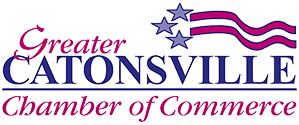How to Handle Your Business Finances When It’s Not Your Thing
How to Handle Your Business Finances When It’s Not Your Thing
You didn’t launch your business to become an accountant. You built it to serve, to make, to create — not to drown in spreadsheets. But the numbers still matter. And if money slips through the cracks, so will the freedom you’re chasing. Good news: you don’t have to become a financial whiz to stay in control. What you do need is rhythm — habits that don’t feel foreign, steps that don’t overwhelm, and structures that don’t fold under pressure.
Start by drawing a hard line between personal and business
If everything’s coming out of one account, you’re asking for confusion — and possibly a tax nightmare. Clear division isn’t just tidy; it’s tactical. You want your business to have its own account, its own rhythm, its own identity. Building financial clarity starts by separating personal and business finances, which makes tax prep cleaner, audits less risky, and your business appear more legitimate to banks. No more mental gymnastics tracking receipts for groceries and vendor payments in the same ledger. Drawing that boundary saves more than time — it protects the structure of your business.
Form the right foundation, right from the start
Structure affects everything. It defines how you pay yourself, what taxes you file, and how protected you are when something unexpected hits. New business owners often gain breathing room by learning how to form an LLC in Maryland — creating a legal separation between their business and personal finances. That separation is more than paperwork. It enables cleaner bookkeeping, fewer mix-ups, and better odds at long-term stability. Starting smart saves years of future cleanup.
Learn what your numbers are trying to say
A balance sheet doesn’t need to be your enemy. It’s a snapshot — and it’s telling you something. Profit and loss reports, cash flow statements, expense breakdowns — these aren’t reserved for MBAs. They’re part of the rhythm of any real business. Plenty of financial literacy resources for small businesses exist to make this easier, not harder. One idea per week is enough; whatever gets you moving without getting stuck.
Build a paper trail you don’t dread
Financial stress creeps in when systems break down — or never get built. And nothing breaks faster than your memory. Instead of relying on your inbox or shoebox to track purchases, implement tools and habits that stick. People overestimate how complicated it has to be, when the truth is most strong operations run on consistent inputs. Even record-keeping best practices can be lightweight and low-maintenance if you start before you’re buried. Ten minutes weekly might save you from ten hours of panic later.
Don’t let the months blur together
You can’t steer what you don’t see. And when months go by without a financial check-in, small leaks turn into floods. Trends don’t announce themselves — you have to look. Repeating patterns in revenue or costs often show up slowly, and that’s exactly why they’re dangerous when missed. Without reviewing financial statements regularly, you’ll find yourself reacting instead of directing. Budget check-ins should be as routine as email.
You don’t have to do this alone
Eventually, the volume or complexity of decisions will outpace your capacity. That’s not a failure — it’s the natural byproduct of building something. Getting outside eyes on your books is one of the clearest ways to reduce stress and improve your next steps. Whether it’s a full-time accountant or part-time strategist, the clarity return often outweighs the financial cost. Many owners regain dozens of hours a month by hiring a small business financial advisor, letting them step out of the weeds. Money decisions feel lighter when you’re not carrying them alone.
Think beyond the next invoice
It’s easy to obsess over this week’s sales or this month’s bills — especially in survival mode. But long-term stability isn’t born from urgency. It comes from perspective, from systems built to grow, from protections you hope you’ll never need. Mapping out five-year goals, retirement plans, or succession scenarios may feel abstract, but those moves shape today’s choices. Many financial strategies for long-term success rely on consistency, not brilliance. You’re building legacy, not just revenue.
This isn’t about becoming a finance person. It’s about staying in the game. You don’t need to know everything — but you do need a grip on the essentials. Give your business clean lines. Give your numbers regular attention. Give yourself permission to ask for help. The goal isn’t just survival — it’s sanity. And in the long run, it’s freedom. Build habits that support you. Put structure behind your hustle. And make sure your business works for you — not the other way around.
Discover the community of Catonsville by joining the Greater Catonsville Chamber of Commerce and unlock opportunities for growth, networking, and success in the heart of Maryland!
